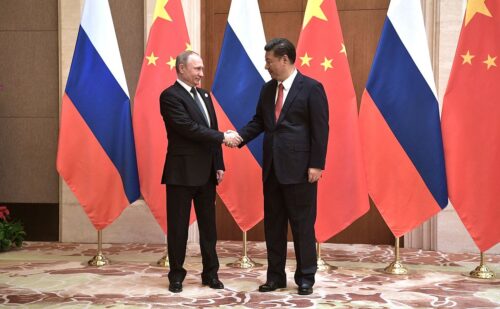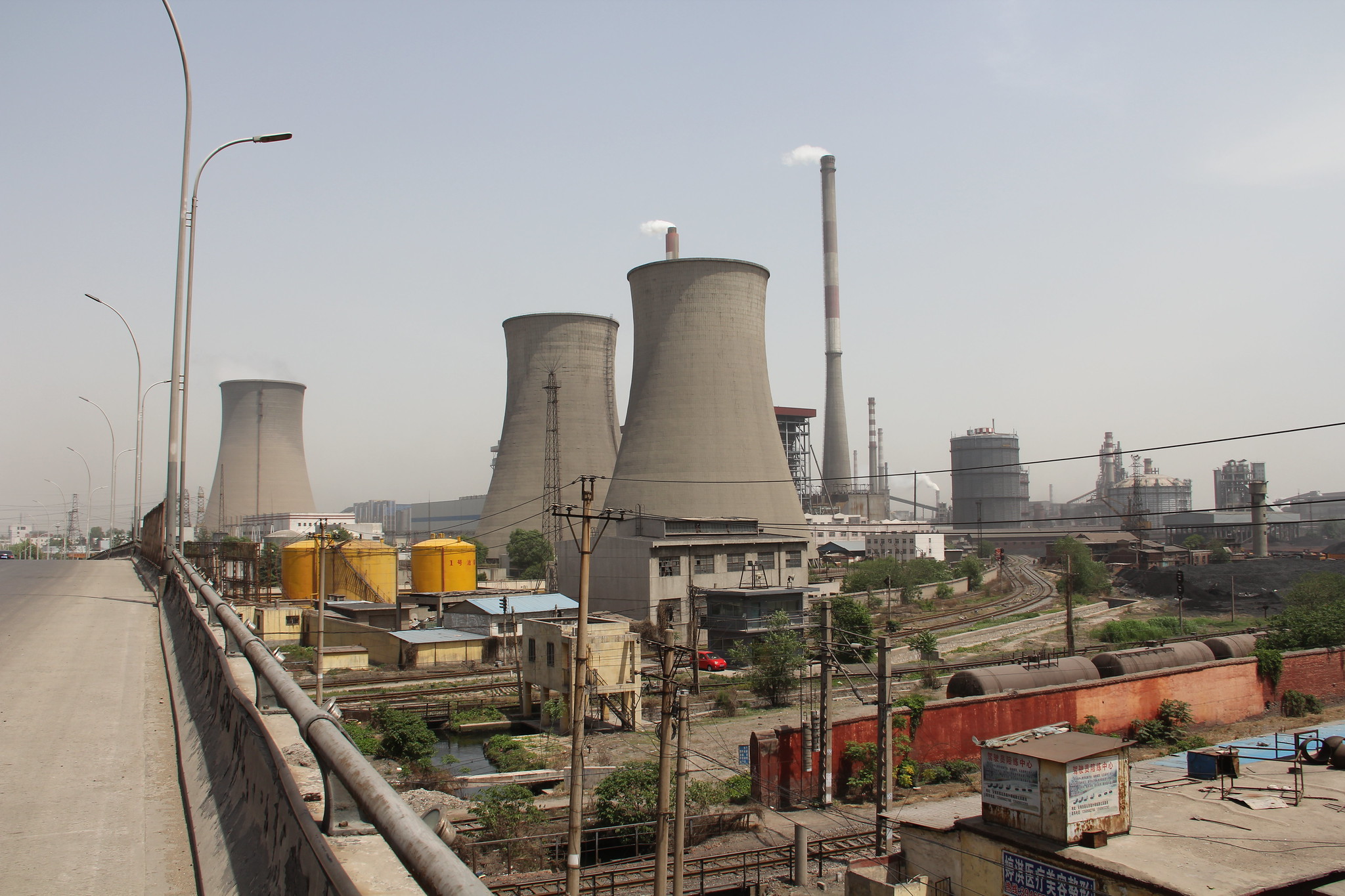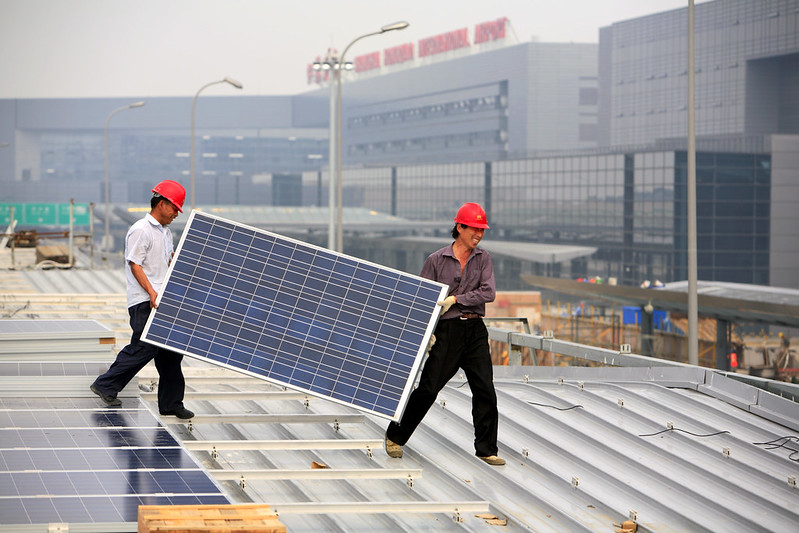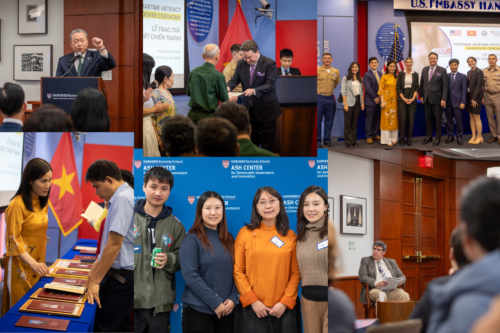As the Biden Administration concludes its first months in office, it’s clear that the White House’s approach to China policy hasn’t substantively differed from his predecessors in substance, if not in tone. Absent a policy reset sought by either Washington or Beijing, political tension between China and the US is unlikely to subside anytime soon. Yet even as both countries joust over important trade, human rights, and security issues, there continue to exist areas of mutual cooperation, particularly around climate change. To understand how China and the US can find common ground in the fight against climate change, we sat down with Edward Cunningham, the China Programs director at the Ash Center and an expert on clean energy policy in Asia.
Ash: While much attention has been paid to conflict points between the two powers, where are there areas of potential cooperation between Washington and Beijing?
Cunningham: Climate change and clean energy seem to present the US and China with an opportunity – albeit limited – to cooperate further. Yet the recently released US-China joint document seems to be more about ensuring transparency and communication about domestic policies, targets, and investments, rather than true bilateral cooperation. The US side will undoubtedly need to continue pressing Chinese counterparts to lay out precisely how peak carbon would be achieved by 2030, what that quantitative peak will be, and similar questions relate to carbon neutrality by 2060, particularly given coal’s role in providing critical heating during the winter, and the fact that there is still a lot of room for growth in the transport sector.
Why climate change in particular? How strong is the internal constituency within China for effectively decarbonizing the country’s economy?
What is most interesting about the climate issue is that it embodies nearly all aspects of the US-China relationship. First, it tests whether the two countries can trust one another when it comes to the basic facts such as remaining transparent in their emissions reduction roadmaps, measurements, and mechanisms. Second, it also raises the question of whether guided competition in sustainable infrastructure financing in the developing world can be a net positive for the world. Finally, and perhaps most importantly, it serves as a test to understand the extent to which the party will strengthen command and control measures or allow market mechanisms to function.
I agree with observers who have long argued that the developing world could benefit by some healthy US-China competition on sustainable infrastructure abroad. A reinvigoration of increased resources to our own International Development Finance Corp in the US would provide much-needed infrastructure financing and expertise to many countries in key regions (such as Southeast Asia) and can be a lever for lifting levels of sustainable infrastructure. These funds can serve as an important alternative to the China Export-Import Bank, China Development Bank, and other sources of Chinese capital that at times lack environmental conditionality clauses. It is also quite a useful time to ramp up, as Chinese lending has been declining for the past 5 years, given de-leveraging and other pressures from Beijing on the banks. The U.S. and China could also work together to reduce the carbon footprint of investments made by Chinese and international financial institutions. Already, the Beijing-based Asian Infrastructure Investment Bank (AIIB) has committed to not funding any coal projects in any of its 100+ member countries. The U.S. could push more Chinese banks to follow this example and incorporate environmental impact assessments (EIAs) more explicitly.
Similarly, the US and China could do much to set clear rules on global commons such as deep-seabed mining (which is heating up as EV batteries proliferate), or management of increased activities in the Arctic, fish takes on the high seas, etc.
But most importantly, the climate will also be a new arena in which we will test the CCP’s commitment to the market. An effective carbon market, which is something President Xi and others have long heralded, requires commitment to market dynamics and mechanisms for it to work well and actually reduce emissions. In summer 2015 the Chinese government reacted to a major collapse in stock markets with significant blunt market interference, ordering brokerages to buy positions and forbidding shareholders to sell positions, for example. For many this was the beginning of a real reversal of President Xi’s pledge at the 2013 Third Plenum that the market would play a “decisive” role in all aspects of the economy. Major market intervention by the party again made headlines in late 2020 when the Ant Group’s IPO was pulled at the last minute. And despite decades of growth, China’s financial markets provide evidence of the deep suspicion foreign investors have of such a commitment to the market – while foreign ownership of Chinese stocks is undoubtedly growing, it is still at about 3% of the equities market and a bit lower percentage in the bonds market. China’s share of the MSCI and other key indices is still underweighted as well. Also, China has long experimented with such trading markets for sulfur dioxide, with meager results and many examples of command and control by local governments winning the day, as well as little effective monitoring and verification of emissions leading to weak limits set by emission permits.
How does Beijing likely view the Biden administration’s attempts to re-engage with the international community on climate change solutions? Do they have faith that the US will live up to its commitments, which will surely outlive the Biden Administration?
Effective and deep cooperation in technology RD&D, the creation of climate funds, and other areas may be most undermined by growing Chinese perception of America’s domestic dysfunction, and the climate issue neatly captures such dysfunction from the Chinese perspective, particularly when it comes to the role of Congress. US climate credibility was not just undermined by the most recent administration and US withdrawal from the Paris Agreement, but the Chinese leadership has learned about the importance of Congress over the past 25 years, since former President Clinton’s issuance of a travel visa to Taiwanese president Lee Deng-hui in 1995, after pressure from certain members of congress. That lesson is again on the minds of many in China who are concerned about a lack of Congressional willingness to fund President Biden’s domestic infrastructure mandates.
Second, from the perspective of Chinese policymakers, US climate credibility is undermined by American lawmakers arguing that the US expand tariffs on the import of Chinese goods such as solar panels, electric vehicle batteries, etc., or block Chinese financial investment in the infrastructure projects that President Biden is planning.








